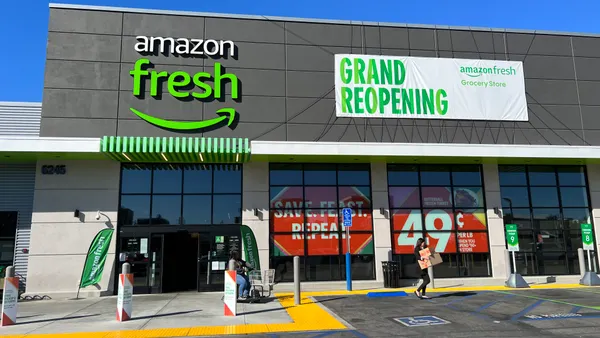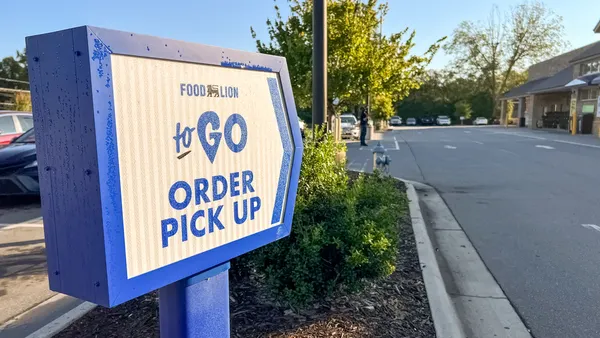Dive Brief:
- Grocery delivery service Dumpling recently raised $3 million in venture capital from Lyft investor Floodgate along with Fuel Capital, according to a press release sent to Grocery Dive.
- The Seattle-based company offers a platform that helps individuals run their own grocery delivery business and cultivate personal relationships with clients. It gives its "solopreneurs" a company credit card to buy goods along with operational support and an online storefront.
- Dumpling claims orders made through its platform are two to three times larger than orders on “leading delivery platforms” and that workers make three times what Instacart workers make per hour.
Dive Insight:
Dumpling's entrepreneurial model takes aim at gig economy companies that have been under fire lately for shifty payment practices and pushing low-value orders onto workers. According to a New York Post report from May, Dumpling has brought hundreds of Instacart workers over to its platform without any sort of marketing budget. Dumpling currently has 500 shoppers across 37 states.
Similar to other delivery companies, Dumpling makes money by taking a fee from each order.
"The [solopreneuer] pays us $5 per transaction as a platform fee; the shopper pays us 5% atop the delivery fee set by the [person who is delivering their goods]," Dumpling co-CEO Joel Shapiro said in an interview with TechCrunch. "So if someone spends $100 on groceries, that customer pays us $5, and the shopper pays us $5 and the shopper gets that delivery fee, plus his or her tip."
In addition to claiming it's a better service for workers, Dumpling says its model produces bigger orders and more loyal customers. Having a personal relationship with shoppers, the company claims, fosters a sense of trust that's crucial to getting more people to order their apples, milk and deli meats online. For customers, Dumpling allows them to peruse shopper profiles so that they can find a shopper that meets their preferences, such as specific knowledge about certain specialties or stores.
Although this model could address some workers’ dissatisfactions, it may present them with new challenges. The model leans heavily on shoppers cultivating their own clients, which could make the gig too burdensome for those who moonlight in their spare time. Finding repeat customers that choose the same shopper also means that the shoppers may have to work harder to add personal touches, to remember each customer’s preferences, and to provide a higher level of customer service than before.
Major delivery companies have made changes to their payment and service policies in response to criticism from workers and customers. Instacart has modified its payment structure, added incentives to improve worker conditions like a support staff chat feature in the app, and added an instant payment feature for workers.
DoorDash, meanwhile, recently announced that it will change its tipping policy to allocate 100% of tips to workers instead of collecting some of the cash, reported TechCrunch. The company was the subject of a recent New York Times article alleging workers weren’t paid fairly.












